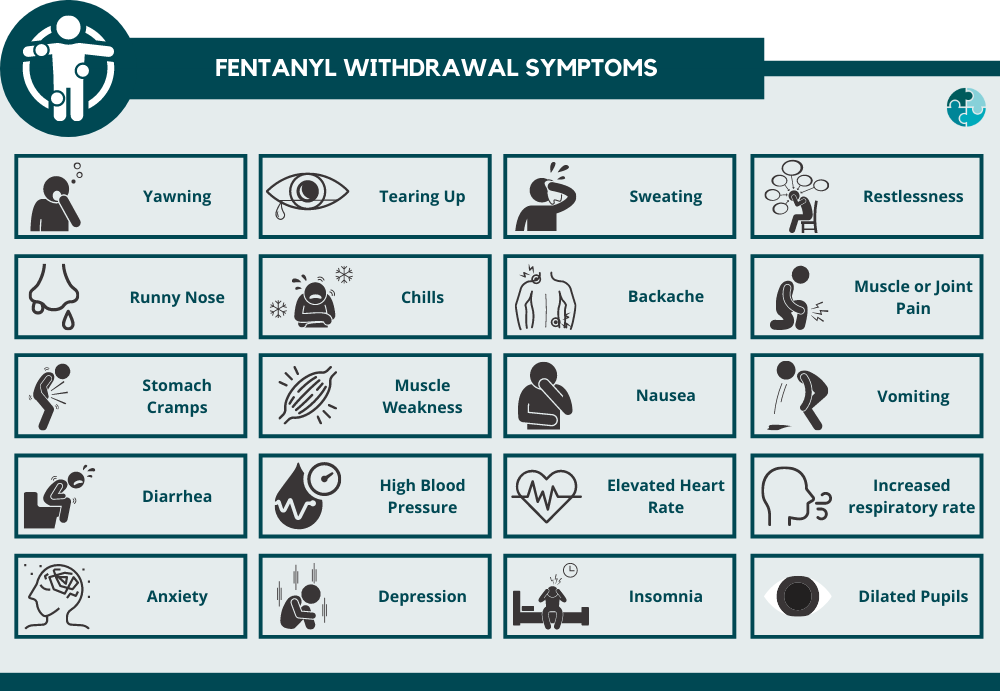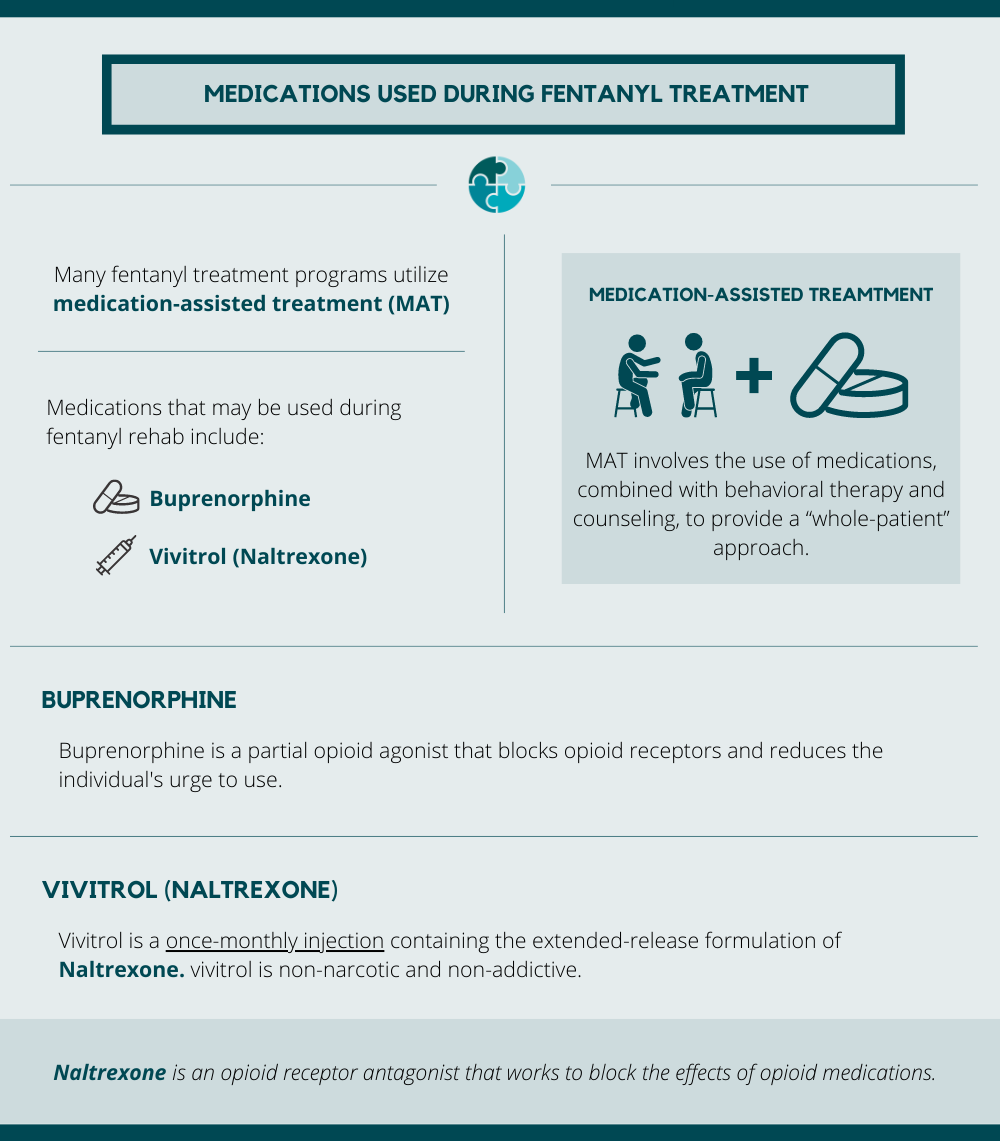
26 Aug Fentanyl Detox and Treatment in Delray Beach
Fentanyl is a potent, synthetic opioid drug that is 50 to 100 times stronger than heroin and morphine. It is used in the medical field to treat patients for pain after surgery or during cancer treatment.[1] However, fentanyl has also become increasingly common in the United States’ illegal drug supply, causing a stunning surge in opioid overdose deaths over the last several years.
Overdose deaths aren’t the only dire consequence of fentanyl abuse, though. People who use fentanyl on a regular basis are likely to develop a physical and psychological dependence on the substance to the point where they cannot function normally without it. Once addicted, individuals can benefit from fentanyl detox and treatment services offered in Delray Beach, FL.
Fentanyl Withdrawal Symptoms
The first step toward overcoming fentanyl addiction is to go through detox. Detox, however, can be extremely difficult due to the severe opioid withdrawal symptoms that occur when a person stops taking fentanyl.
Fentanyl withdrawal symptoms are similar to symptoms of withdrawal from other opioids. They are flu-like in nature and can become extremely severe. Although the symptoms themselves are not life-threatening, complications like dehydration, relapse, and suicidal thoughts may occur.
As fentanyl begins to leave a person’s system, they may begin experiencing symptoms of withdrawal, such as:[2]

- Yawning
- Tearing up
- Sweating
- Restlessness
- Runny nose
- Chills
- Backache
- Muscle or joint pain
- Stomach cramps
- Muscle weakness
- Nausea, vomiting, and diarrhea
- High blood pressure
- Elevated heart rate
- Increased respiratory rate
- Anxiety
- Depression
- Insomnia
- Dilated pupils
It’s always best to detox from fentanyl at a licensed medical or addiction treatment facility.
Fentanyl Withdrawal Timeline
How long fentanyl withdrawal lasts depends on a variety of different factors. First and foremost, it depends on the half-life of the substance, which depends on in which form fentanyl was taken.
In transdermal patch form, fentanyl has a long half-life of 17 hours, so individuals who have been using the patch may not begin experiencing withdrawal symptoms for 24-36 hours.[2] People who have been using fentanyl in powdered form, however, will likely begin having symptoms 12-24 hours after taking their last dose.
Other factors that influence the fentanyl withdrawal timeline are:
- Length of opioid use
- Frequency of fentanyl use
- Regular dosage
- Co-occurring health conditions
- Age, weight, and metabolism
- Past history with opioid withdrawal
Fentanyl withdrawal symptoms typically peak 2-4 days after the last use of the drug. In total, withdrawal symptoms can last for about one week. Some patients with a chronic history of opioid use may experience lingering psychological symptoms that last for several months, a condition known as post-acute withdrawal syndrome (PAWS). PAWS is best managed in a comprehensive treatment program with behavioral therapy, peer support, and medication.[3]
Fentanyl Detox Procedures
The safest way to detox from fentanyl is to do so at a medical detox facility. This involves medically supervised withdrawal services for the patient’s comfort and safety. Detox is typically broken into three phases:
- Evaluation – Patients meet with a doctor or the clinical team for an initial assessment. During this time, patients answer questions about their medical history, substance abuse, and withdrawal symptoms. This evaluation helps the clinical team devise an individualized treatment plan to keep the patient safe and comfortable.
- Medical stabilization – This is what people generally think of when they think of detox. Patients are to stay in a medically supervised area where they are checked on by nurses throughout the day. Nurses take their vitals on a regular basis and administer FDA-approved treatment medications which have been prescribed by the doctor. When it comes to fentanyl detox, medications used include methadone, buprenorphine, and clonidine.[4] Group counseling and support sessions may also be offered during this time.
- Treatment planning – Detox is only the first step towards overcoming fentanyl addiction. Once patients are medically stable, they meet with a substance abuse counselor to coordinate plans for ongoing care.
Although fentanyl withdrawal is typically not life-threatening, the risk for relapse is extremely high. It is never advised to detox from any opioid without medical support.
Treatment for Fentanyl Abuse and Addiction
After completing detox, the recovery process has only just begun. Specialized treatment centers in Delray Beach offer both inpatient and outpatient treatment services that can help individuals overcome fentanyl addiction.
Even after finishing a fentanyl detox program, cravings can remain strong and unbearable. As a result, inpatient rehab is a great place to start with treatment. Inpatient rehab facilities have staff on-site all day to monitor and support patients. By providing treatment in a safe, residential setting, patients are removed from outside triggers and are separated from their old lifestyle.
During treatment, therapists provide individualized care to help patients address the underlying causes of their addiction. Whether a person is struggling with depression, trauma, or chronic pain, synthetic opioid abuse requires comprehensive treatment that addresses the root issue of substance abuse.
Many fentanyl treatment programs in Delray Beach utilize medication-assisted treatment (MAT). MAT involves the use of medications, combined with behavioral therapy and counseling, to provide a “whole-patient” approach. Medications that may be used during fentanyl rehab include buprenorphine and Vivitrol (naltrexone).[5]

Detox and inpatient rehab is only the beginning. Many patients benefit from participating in a full continuum of care involving PHP, IOP, and outpatient programming.
Begin Fentanyl Detox and Treatment in Delray Beach Today
Beating fentanyl addiction can be challenging to overcome, especially without professional help. If you or a loved one are struggling with fentanyl addiction, our team at Florida Recovery Group is here to help. Don’t wait any longer–call now to speak with a dedicated addiction specialist.
References:
- https://www.drugabuse.gov/drug-topics/fentanyl
- https://www.jpsmjournal.com/article/S0885-3924(03)00495-0/fulltext
- https://www.semel.ucla.edu/dual-diagnosis-program/News_and_Resources/PAWS
- https://www.fda.gov/drugs/information-drug-class/information-about-medication-assisted-treatment-mat
- https://www.samhsa.gov/medication-assisted-treatment





